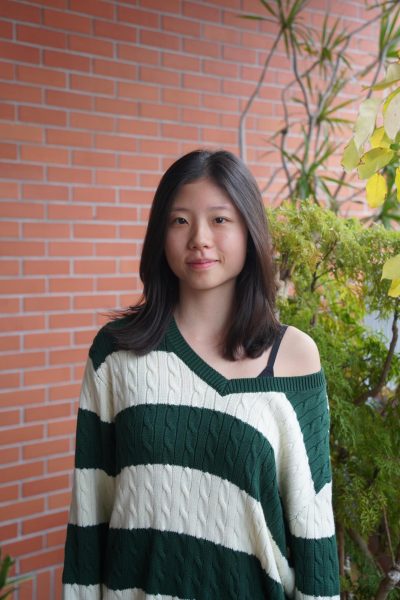Spending midnights catching up on assignments, weekends cramming homework and unproductive hours self-learning quiz material is the reality for most high school students balancing extracurriculars and academics. Trips, whether they be debate competitions in the United States (US) or athletic outings in Southeast Asia, are becoming extremely frequent in the hectic period of Quarter Three at Taipei American School (TAS). Often disguised as quick getaways from Taipei with your friends, these trips seem like great reliefs from the stress and expectations of school. However, is it really that easy to jump back into school after taking a few days off? And if so, is it worth it?
Speech and debate competitors, in particular, have a unique perspective on this issue. As someone who is constantly seeing her debater friends disappear to Chicago or California every few weeks for a trip, I have witnessed firsthand how these trips impact their academic life. Sisy A. (‘28) first mentions some of the academic benefits of rigorous debate trips. “You have more opportunities to conduct research on specific topics, enhancing your ability to see patterns in common issues in history” she noted. However, time management plays a key role in succeeding in both debate and academics. “A great strategy is to block out a [period of] time you want to finish an assignment,” said Ariel C. (‘27), another debater. “For example, from three to four pm, you can focus on English, and from four to five pm you have to finish your history homework.” Her strategy highlights an important truth: everyone has 24 hours in a day and it’s up to us how we use them. By redirecting the minutes you spend scrolling on your phone or texting your friends towards studying, you can open up more time to excel in both extracurriculars and academics.
Athletes, as well, are expected to attend around two trips to Interscholastic Association of Southeast Asian Schools (IASAS) schools per season. For two to five days, athletes undergo intense matches in new environments, with very little time to work on their academic duties. Izzy C. (‘28) mentioned that she was grateful for the convenient times of her trips, as both of them overlapped with school breaks such as Thanksgiving and Lunar New Year. However, the trips came with their setbacks. “I was not able to contact any of my teachers. I was unaware of the format and expectations of my history essay until the day I came back from break,” she said. Despite the academic setbacks, Izzy still cherishes her IASAS trips. “It was a valuable experience to form connections with your team and develop a greater sense of independence from traveling alone.” These athletic trips foster the skills of discipline and grit, pushing athletes to strengthen their mentality through endless competitions and inevitable losses. This determined mindset can be applied to academics, helping students persevere through hours of homework and studying.
Personally, I believe that the knowledge and discipline learned from school trips are essential for a high school student. These trips provide a valuable opportunity to develop time management skills and independence, which are crucial for adulthood and life beyond school. However, there should be clear communication between teachers and students regarding school trips. In a single quarter, there should be a few regulations for how many school trips you are allowed to take, especially if you miss over a week of school in total. If the counselor notices a significant drop in grades and GPA, it would be helpful to have a few mandatory discussions on how to successfully balance the major responsibilities of academics and extracurriculars.
Moreover, teachers could also implement recorded lessons and online makeup reviews for students. An 80-minute recorded lecture may be hard to sit through, but small anecdotes on a specific challenging math question or a key discussion question from history class can be extremely beneficial. Students, who are exhausted from jet lag and hours of competition, and teachers, who might be frustrated from a lack of attendance, might not always see eye to eye on this issue. However, working together to create a system that promotes growth for students and eases the challenges of management for teachers is essential for fostering a balanced academic environment at TAS.

![The girls’ tennis team flying their way to IASAS hosted in Manila. [PHOTO COURTESY OF THE GIRLS’ TENNIS TEAM]](https://blueandgoldonline.org/wp-content/uploads/2025/04/F214D810-A75D-41C1-A0C1-A3A96003D550_1_201_a.jpeg)
![A myriad of impressive trophies and awards. [ANNABELLE HSU/THE BLUE & GOLD]](https://blueandgoldonline.org/wp-content/uploads/2025/09/Awards2-1200x512.jpeg)
![Students' calendars say goodbye to exam week. [ANNABELLE HSU/THE BLUE & GOLD]](https://blueandgoldonline.org/wp-content/uploads/2025/09/Exam-week-1200x740.jpg)
![A collection of college flags. [PHOTO COURTESY OF AMBER HU ('27)]](https://blueandgoldonline.org/wp-content/uploads/2025/05/IMG_5029-1200x577.jpeg)

![An SAT word cloud. [PHOTO COURTESY OF WORDCLOUDS]](https://blueandgoldonline.org/wp-content/uploads/2025/05/SAT.jpeg)
![Collage of banned books, including “The Handmaid’s Tale” by Margaret Atwood. [MINSUN KIM/ THE BLUE & GOLD]](https://blueandgoldonline.org/wp-content/uploads/2025/04/IMG_4274-1200x681.jpeg)
